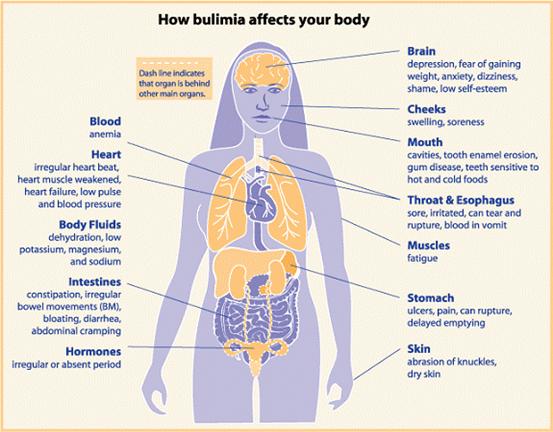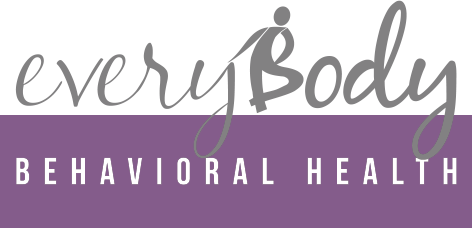Learn more about
Bulimia Nervosa
In 2013, the Diagnostic and Statistical Manual of Mental Disorders, Fifth Edition (DSM-5) changed the criteria for Bulimia Nervosa. Here are the current DSM-5 criteria:
- Recurrent episodes of binge eating:
- Eating, in a discrete period of time, an amount of food that is definitely larger than most people would eat during a similar period of time and under similar circumstances.
- A sense of lack of control over eating during the episode.
- Recurrent inappropriate compensatory behavior in order to prevent weight gain, such as self-induced vomiting; misuse of laxatives, diuretics, or other medications; fasting; or excessive exercise.
- At least once a week for 3 months.
- Self-evaluation is unduly influenced by body shape and weight.

Dr. Shapiro and colleagues recently published a review of the research on bulimia nervosa (Shapiro JR et. al, Int J Eat Disord 2007; 40:321-336) covering medication and psychotherapy studies. Findings suggest that:
- Prozac 60 mg did better than 20 mg/day.
- Other meds shown effective in single studies have included desipramine (200-300 mg/day), topiramate (100 mg/day), and odansetron. Wellbutrin should be avoided in patients with bulimia or anorexia, because one early study indicated a higher seizure risk in such patients.
- In terms of therapy, cognitive behavioral therapy (CBT) as being the most effective psychotherapy, although the new data on family-based therapy for bulimia had not been released in time for the review.
What exactly is a binge?
Most people overeat on occasion or even regularly. Restaurants serve large portions and we just want to finish those French fries because they were so good. Many people also emotionally eat on occasion such as eating ice cream after an argument. A binge, however, is eating an amount of food that most people would consider large or that most would not consume in a similar setting. A binge typically occurs within a short period of time such as two hours and the person may feel like they are powerless or unable to stop.
While binge eating is not overeating, grazing all day, making “unhealthy” food choices, or emotional eating, each of these are all symptoms of disordered eating.
